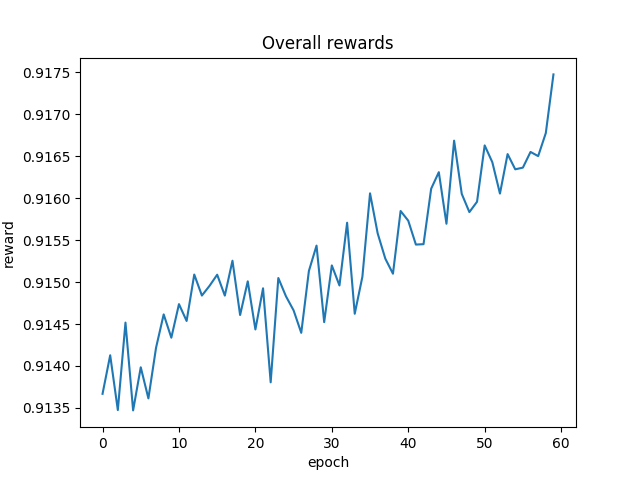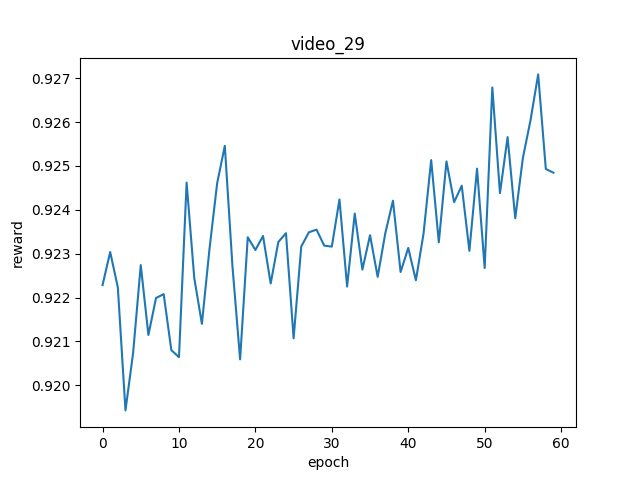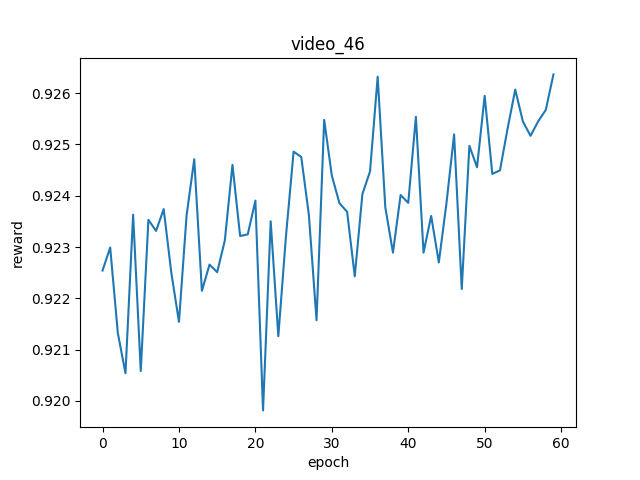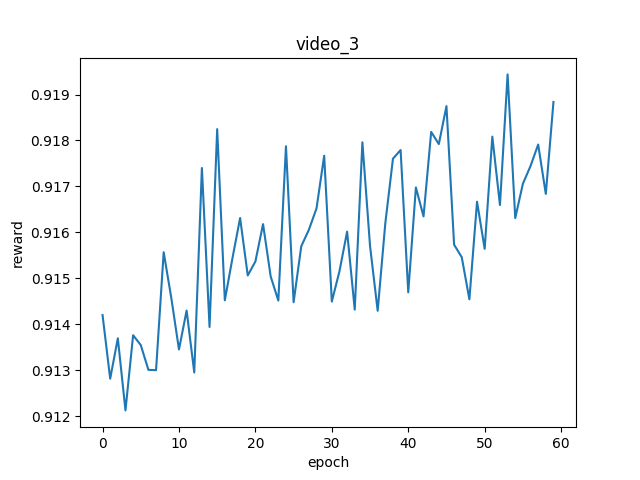This repo contains the Pytorch implementation of the AAAI'18 paper - Deep Reinforcement Learning for Unsupervised Video Summarization with Diversity-Representativeness Reward. The original Theano implementation can be found here.
The main requirements are pytorch (v0.4.0) and python 2.7. Some dependencies that may not be installed in your machine are tabulate and h5py. Please install other missing dependencies.
- Download preprocessed datasets
git clone https://github.com/KaiyangZhou/pytorch-vsumm-reinforce
cd pytorch-vsumm-reinforce
# download datasets.tar.gz (173.5MB)
wget http://www.eecs.qmul.ac.uk/~kz303/vsumm-reinforce/datasets.tar.gz
tar -xvzf datasets.tar.gz- Make splits
python create_split.py -d datasets/eccv16_dataset_summe_google_pool5.h5 --save-dir datasets --save-name summe_splits --num-splits 5As a result, the dataset is randomly split for 5 times, which are saved as json file.
Train and test codes are written in main.py. To see the detailed arguments, please do python main.py -h.
python main.py -d datasets/eccv16_dataset_summe_google_pool5.h5 -s datasets/summe_splits.json -m summe --gpu 0 --save-dir log/summe-split0 --split-id 0 --verbosepython main.py -d datasets/eccv16_dataset_summe_google_pool5.h5 -s datasets/summe_splits.json -m summe --gpu 0 --save-dir log/summe-split0 --split-id 0 --evaluate --resume path_to_your_model.pth.tar --verbose --save-resultsIf argument --save-results is enabled, output results will be saved to results.h5 under the same folder specified by --save-dir. To visualize the score-vs-gtscore, simple do
python visualize_results.py -p path_to/result.h5We provide codes to plot the rewards obtained at each epoch. Use parse_log.py to plot the average rewards
python parse_log.py -p path_to/log_train.txtThe plotted image would look like
If you wanna plot the epoch-reward curve for some specific videos, do
python parse_json.py -p path_to/rewards.json -i 0You will obtain images like
If you prefer to visualize the epoch-reward curve for all training videos, try parse_json.sh. Modify the code according to your purpose.
You can use summary2video.py to transform the binary machine_summary to real summary video. You need to have a directory containing video frames. The code will automatically write summary frames to a video where the frame rate can be controlled. Use the following command to generate a .mp4 video
python summary2video.py -p path_to/result.h5 -d path_to/video_frames -i 0 --fps 30 --save-dir log --save-name summary.mp4Please remember to specify the naming format of your video frames on this line.
We preprocess data by extracting image features for videos and save them to h5 file. The file format looks like this. After that, you can make split via create_split.py. If you wanna train policy network using the entire dataset, just do train_keys = dataset.keys(). Here is the code where we initialize dataset. If you have any problems, feel free to contact me by email or raise an issue.
@article{zhou2017reinforcevsumm,
title={Deep Reinforcement Learning for Unsupervised Video Summarization with Diversity-Representativeness Reward},
author={Zhou, Kaiyang and Qiao, Yu and Xiang, Tao},
journal={arXiv:1801.00054},
year={2017}
}




